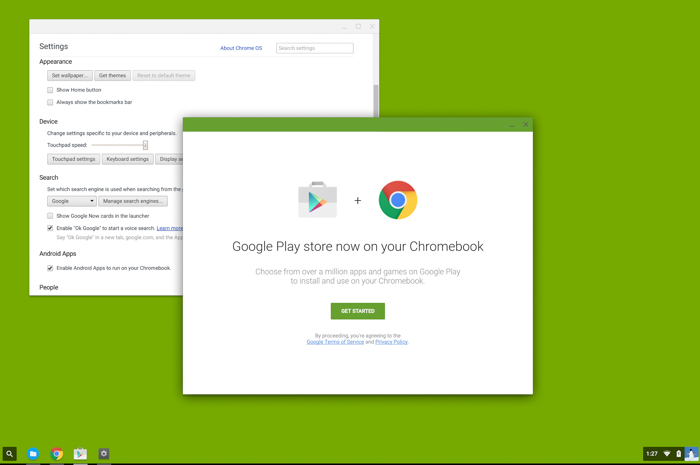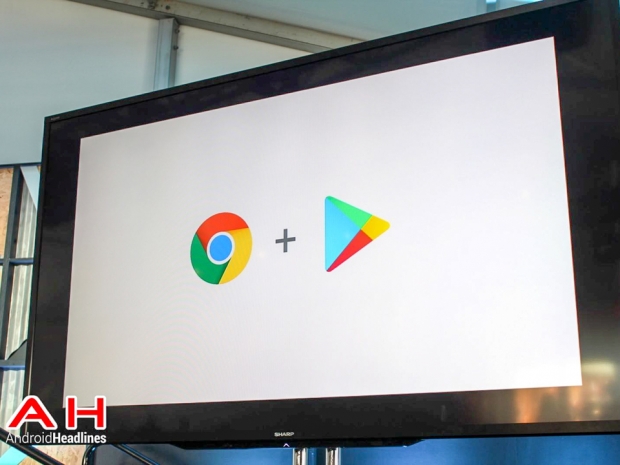
Image credit: ArsTechnica.com
The announcement has a significant potential to change Chromebooks from traditional “online-only” devices to more robust platforms that now enable some basic support for offline Android apps. These can include word processors and basic productivity suites, drawing utilities, calculators, music playback apps, video editing and movie playback apps and even Kindle and PDF document readers, to name a few.
Company CEO Sundar Pichai originally talked about bringing Android support to Chrome OS during the 2014 I/O conference. The result was an interim project called “App Runtime” that allowed only a small handful of Android apps to be accessed inside Chrome OS. Now, the entire platform can be emulated seamlessly and naturally within the same kernel and resources of a Chromebook device.
Android applications will receive full file access through the Files app, and notifications from Android apps running on the Chromebook, along with those from Android-enables smartphones, tablets and other devices will be delivered through the Chrome OS interface on the Chromebook device.
The new Android-supported Chrome operating system will become available first to developers in June under the release “N53” in the Chrome OS developer channel.![]()
Google's second-gen Chromebook Pixel running the Chromebook App Launcher
Meanwhile, the company says it is working with Samsung to launch some new high-end Chromebooks later this year aimed specifically at supporting the heavier workloads required by some more demanding Android apps. There will also be an optimization process involved to ensure Android apps can scale efficiently across various device aspect ratios and pixel densities, not to mention architectures including Intel x86, ARM big.LITTLE and the various core counts, instruction latencies and GPU configurations in between.
For now, Google keeps a list of supported Chromebooks that will work with Android apps here.




